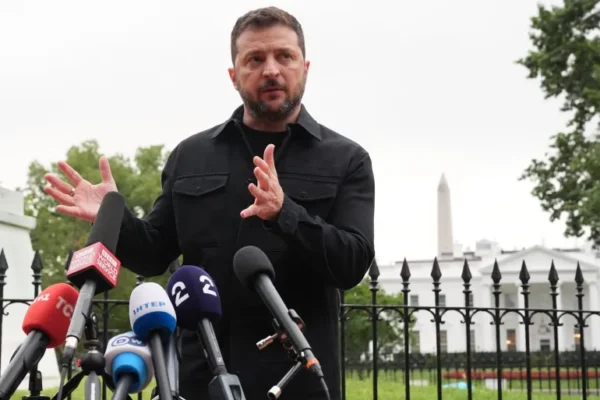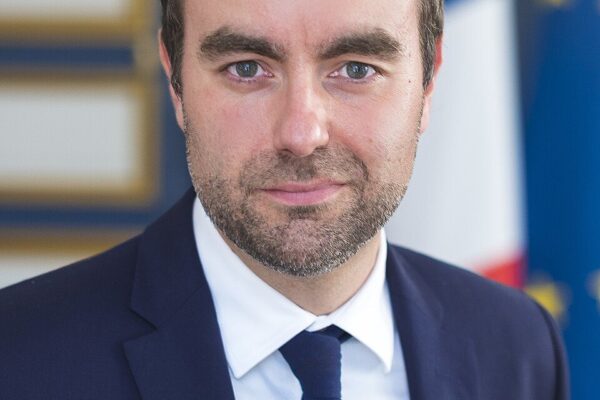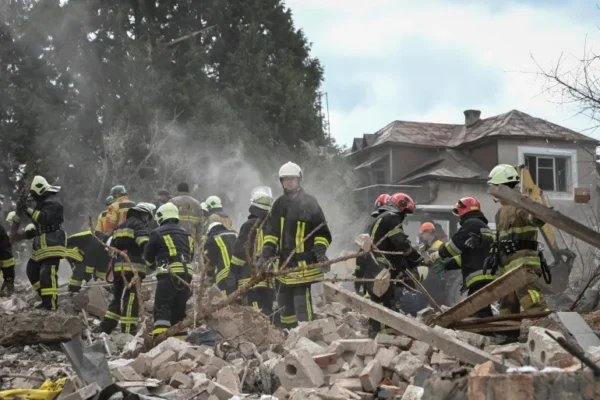At least five people were killed overnight as Russia launched a large-scale wave of drone and missile attacks across multiple regions of Ukraine, targeting civilian and energy infrastructure in one of the heaviest bombardments in recent weeks. Ukrainian President Volodymyr Zelenskyy said on Sunday that Russian forces fired about 50 missiles and 500 attack drones, striking several regions including Lviv, Ivano-Frankivsk, Zaporizhzhia, Chernihiv, Sumy, Kharkiv, Kherson, Odesa, and Kirovohrad. “The Russians struck with cruise missiles, Shaheds, and Kinzhals among other things,” Zelenskyy said. Local officials confirmed that one person was killed in Zaporizhzhia, while four members of a family, including a 15-year-old girl, died in Lviv after a drone strike destroyed their home. Lviv’s mayor Andriy Sadovyi said the city was left without power, and public transport was suspended amid widespread fires and damage. Residents were urged to stay indoors due to heavy smoke. In the nearby village of Lapaivka, resident Mykola Dmytrotsa described the devastation: “All windows were blown out, doors and everything inside too. No doors, no windows, no roof.” Local officials reported that 10 homes were completely destroyed and dozens more were damaged beyond repair. Regional governor Maksym Kozytskyi said the assault was “the largest attack on Lviv since the start of the war.” Ukraine’s Prime Minister Yulia Svyrydenko condemned the strikes, accusing Moscow of deliberately targeting residential areas and energy facilities: “Moscow continues to strike homes, schools, and energy facilities – proving that destruction remains its only strategy.” The latest assault follows another deadly attack on Saturday in which 30 people were killed on a passenger train in Sumy, which Zelenskyy described as “savage.” Poland and NATO Respond Poland said it scrambled fighter jets alongside NATO allies as part of a “preventive measure” to secure its airspace. The move followed reports of Russian drones entering Polish airspace in early September, and similar airspace violations in Norway, Estonia, Lithuania, and Denmark in recent weeks. In Denmark, officials accused Russian naval vessels of tracking Danish ships and aircraft “in an aggressive way,” while Belgium reported 15 unidentified drones over a military base on Friday. European Union foreign policy chief Kaja Kallas condemned Russia’s latest strikes as “terror attacks on civilians,” saying the EU was preparing a new sanctions package and would support Ukraine “for as long as needed.” Lithuanian foreign minister Kestutis Budrys joined calls for nations to stop purchasing Russian energy, arguing that such revenues “fuel Moscow’s war machine.” “We must stop feeding its imperial appetite and put an end to state terrorism,” Budrys said on X. Analysts say Russia’s intensified strikes come as retaliation for Europe’s increasingly firm pro-Ukraine stance. Samuel Ramani, a fellow at the UK-based defence think tank RUSI, told Al Jazeera that Moscow views Europe as an “incorrigible adversary” while seeking to maintain limited engagement with Washington. “The Russians are using a variety of tactics — GPS jamming, drones, and even hot air balloons — to signal their discontent,” Ramani said.









